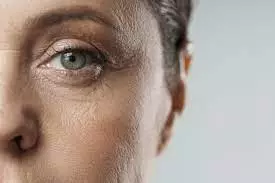

Scientists in Cambridge claim to have succeeded in rejuvenating a 53-year-old woman's skin cells so that they looked and behaved as though they were that of a 23-year-old's.(Photo for Representation)
<p>
Scientists in Cambridge claim to have succeeded in rejuvenating a 53-year-old woman&#39;s skin cells so that they looked and behaved as though they were that of a 23-year-old&#39;s.</p>
<p>
A study detailing the method has been published in eLife magazine. They believe that they can do the same thing with other tissues in the body.</p>
<p>
The head of the team, Prof Wolf Reik, of the Babraham Institute in Cambridge, told BBC News that he hoped that the technique could eventually be used to keep people healthier for longer as they grow older.</p>
<p>
Prof Reik says some of the first applications could be to develop medicines to rejuvenate skin in older people in parts of the body where they have been cut or burned – as a way to speed up healing. The researchers have demonstrated that this is possible in principle by showing that their rejuvenated skin cells move more quickly in experiments simulating a wound.</p>
<p>
The eventual aim is to develop treatments for age-related diseases such as diabetes, heart disease and neurological disorders.</p>
<p>
The technology is built on the techniques used to create Dolly the cloned sheep more than 25 years ago.</p>
<p>
Prof Reik&#39;s team used the IPS technique on 53-year-old skin cells. But they cut short the chemical bath from 50 days to around 12.</p>
<p>
The findings are still in early stages and if more research is done, the method could revolutionise regenerative medicines, said the scientists.</p>
<p>
<strong>Dolly the sheep technology at play</strong></p>
<p>
It is built on the technology used to clone Dolly the sheep more than 25 years ago.</p>
<p>
The researchers at Roslin Institute in Scotland cloned Dolly by developing a method that turned the mammary gland cell taken from a sheep into an embryo. The gland was taken from six-year-old Finn Dorset sheep and an egg cell taken from a Scottish Blackface sheep.</p>
<p>
Dolly was born on July 5, 1996.</p>
<p>
The technique was aimed to create human embryonic stem cells, which could be grown into specific tissues, like muscle, cartilage and nerve cells. These tissues could be used to replace old body parts.</p>
Leaders of the BRICS nations welcomed Indonesia as a member of the group, while 10…
External Affairs Minister S Jaishankar held a meeting with his Russian counterpart Sergey Lavrov on…
The Russian military has carried out a series of strikes on Ukrainian military-related targets in…
India's toy industry, once heavily dependent on imports, is now manufacturing domestically and exporting to…
Members of the Indian diaspora and several artists in Argentina welcomed Prime Minister Narendra Modi…
Sub Lieutenant Astha Poonia officially became the first woman to be streamed into the fighter…